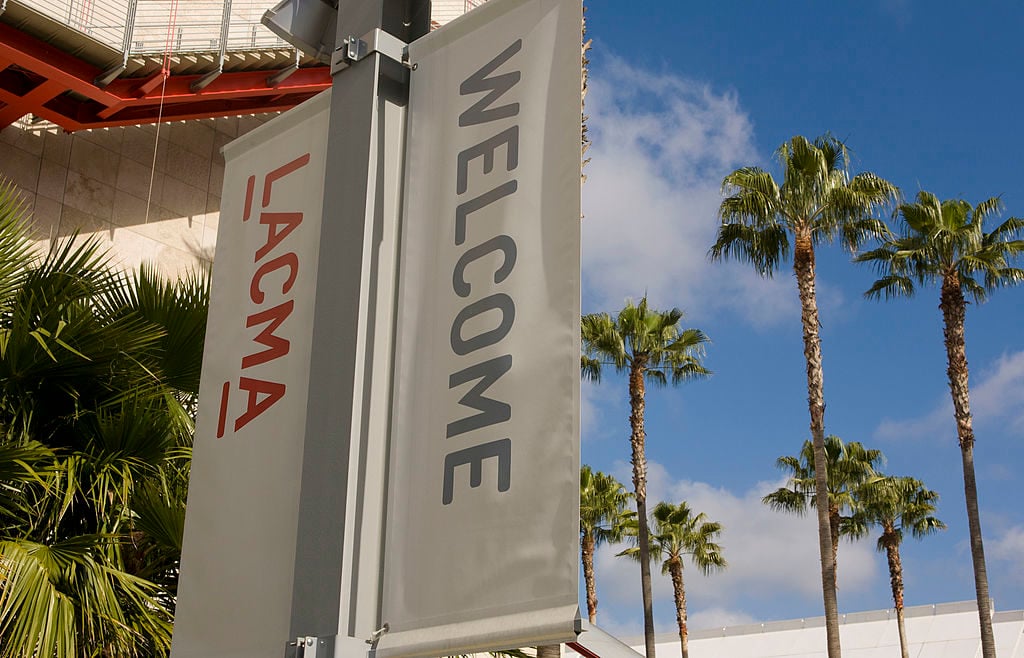People
LACMA Trustee Tom Gores Has Resigned From the Museum’s Board After Activists Decried the Billionaire’s Prison Investments
Gores's investment firm owns a prison telephone company that charges fees to the families of prisoners.

Gores's investment firm owns a prison telephone company that charges fees to the families of prisoners.

Sarah Cascone

Criminal justice activists have prevailed in their efforts to oust NBA team owner Tom Gores from the board of the Los Angeles County Museum of Art due to his investment firm’s ownership of a prison telephone company. The 56-year-old billionaire stepped down from his post on Thursday night.
Gores’s firm, Platinum Equity, acquired Securus Technologies, a company accused of grossly overcharging prisoners to make phone calls, for $1.6 billion in 2017. Criticism of the museum’s ties to Gores had intensified in recent weeks as two groups penned a letter to LACMA leadership alleging that the board member “continues to amass wealth and benefit from a system that exploits Black people and profits from our pain.”
The letter, accompanied by a petition signed by more than 100 artists as well as museum donors, demanded Gores’s removal, saying “Tom Gores is a prison profiteer and has no place on the board of a prestigious public museum like the LACMA.”
The owner of the Detroit Pistons, Gores has been on the LACMA board since 2006. At last week’s board of trustees meeting, he defended himself and claimed Platinum was instituting reforms at Securus, the Los Angeles Times reported. But the hefty costs of monitoring prisoner phone calls for security purposes are still being passed on to the families of incarcerated persons, who are statistically more likely to be poor persons of color.

A welcome sign at the Los Angeles County Museum of Art. Photo by George Rose/Getty Images.
Gores sent a letter to museum director Michael Govan tendering his resignation on Thursday. In the letter, quoted by the Times, Gores characterized Securus as a “nexus for addressing the political, social, racial, and economic issues roiling America today,” and noted that his reform efforts face criticism from both sides.
“Paraphrasing a salient question at last week’s board meeting: ‘Okay Tom, we appreciate your efforts to ‘take the hill’ and reform Securus. But why does LACMA have to take the hill with you?’ The simple answer is: You don’t,” wrote Gores. “Effective immediately, I resign my position on the board and forego all ties to the institution.”
“We’re very grateful to Tom, not only for his generosity and support over more than a decade, but also for this additional gesture of support for LACMA right now,” a museum representative told Artnet News in an email.
Last year, a similar activist effort led Warren Kanders to resign as vice chair of the Whitney Museum of American Art in New York. After widespread protests over his company Safariland’s use of teargas against migrants at the US-Mexico border, Kanders moved to sell off parts of his business that manufacture chemicals used for crowd control.
Other prominent museum trustees that have come under fire for their business ties include Glenn Dubin, Larry Fink, and Leon Black at New York’s Museum of Modern Art. BlackRock, the company owned by Fink has invested in several private prison businesses, while Black and Dubin had close ties with convicted sex offender Jeffrey Epstein. Black has also been criticized for his company Apollo Management’s investment in Academi, formerly called Blackwater, a controversial private military contractor.
Correction, 10/12: A previous version of this article misidentified Larry Fink as a trustee of the Metropolitan Museum of Art. In fact, he is a trustee of the Museum of Modern Art.